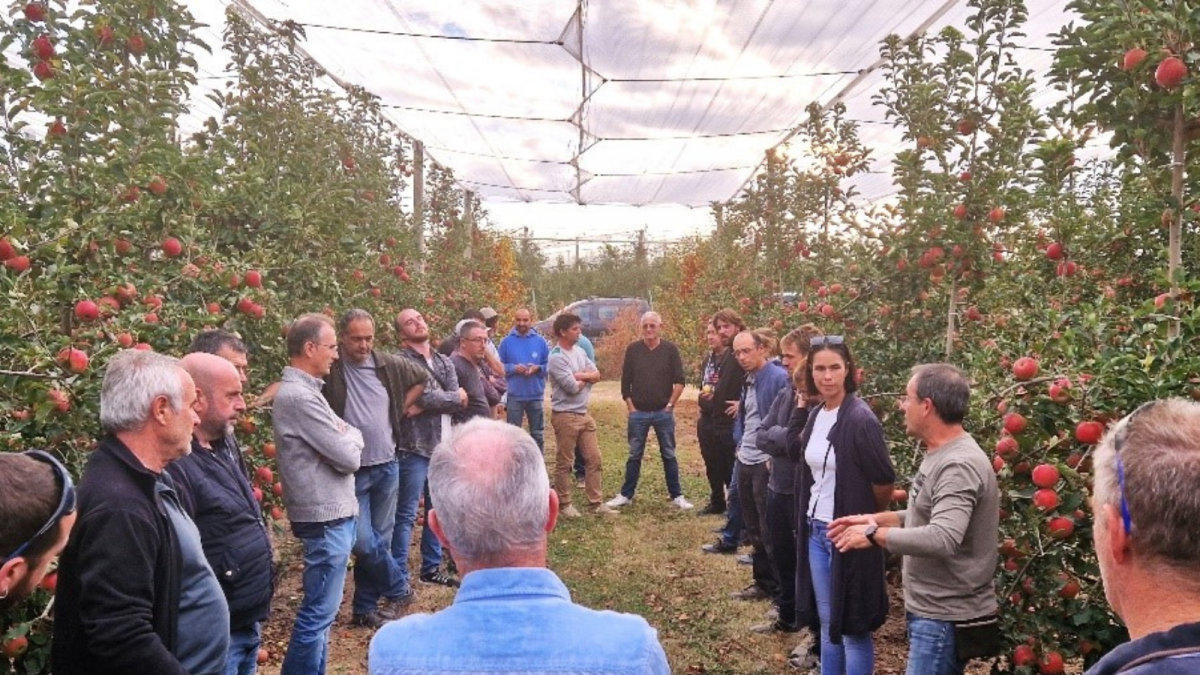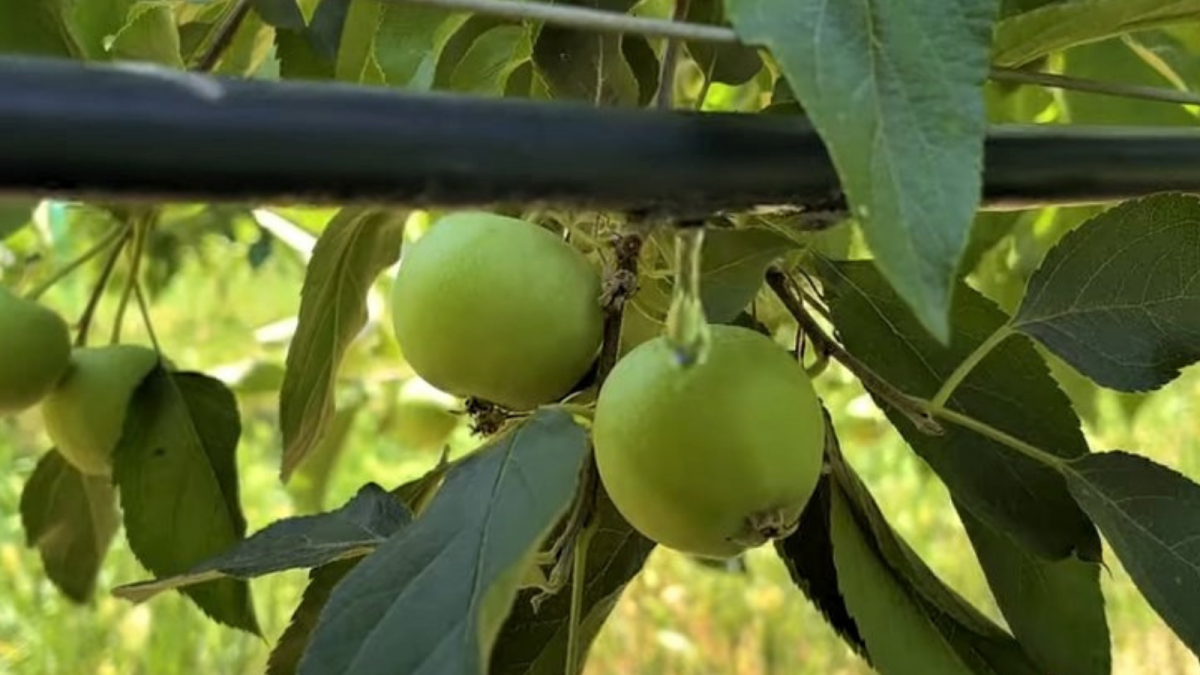Last week, Giropoma completed the 2023 harvest, which stands out for the high quality of its apples, good coloration and size, and excellent sugar content. Despite being a year marked by drought, weather conditions have been favorable for the apple producer and marketer, which has successfully achieved the harvest forecasts.
Despite being a campaign marked by the water restrictions declared by the Catalan Water Agency, the correct management of this has allowed excellent fruit and the desired quantity.
This has been possible thanks to the irrigation system based on soil moisture sensors that the company has implemented, a soil monitoring based on probes that measure the volumetric water content in the soil; and the thinning carried out to ensure that the fruits could reach the harvest with the expected quality.
This low water availability caused by the lack of rainfall has minimized the occurrence of fungal diseases and, therefore, apple trees have been less affected by these organisms.
Giropoma makes a positive balance of this year’s harvest, closes the 2023 harvest with satisfaction, but also with concern about the drought situation that is expected to mark 2024, if it does not rain soon.
About Giropoma’s varieties
Giropoma currently markets 8 different varieties of apples. The Gala, Golden, Red Delicious and Granny Smith varieties, which are under the umbrella of the PGI Apple of Girona, the Fuji and the club varieties, the Regalyou marketed under the Candine® brand, the Cripps Pink marketed under the Pink Lady® brand and the Cripps Red marketed under the Joya® brand.


